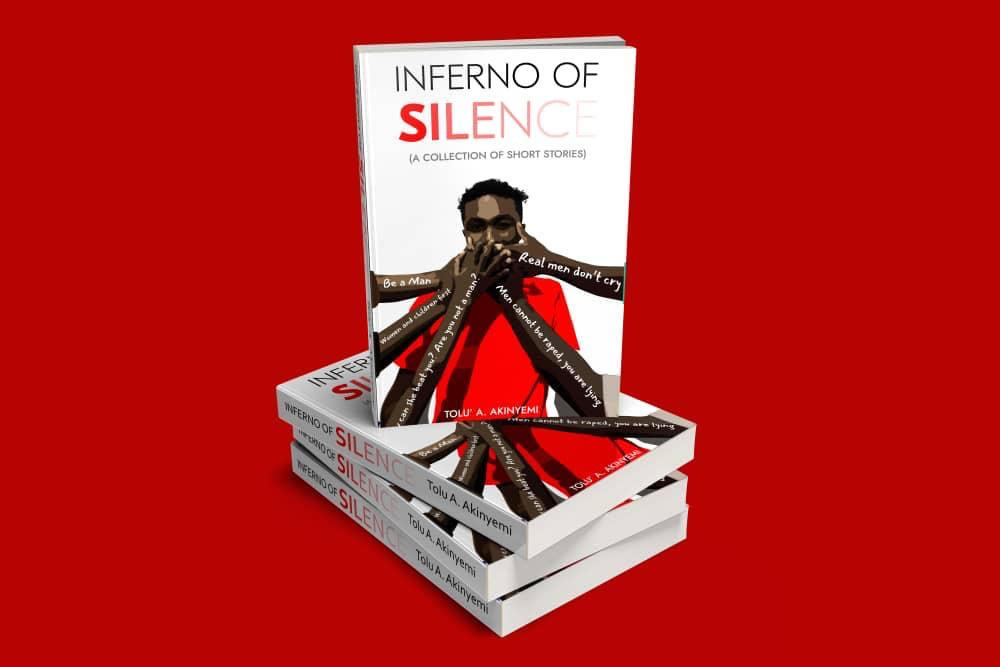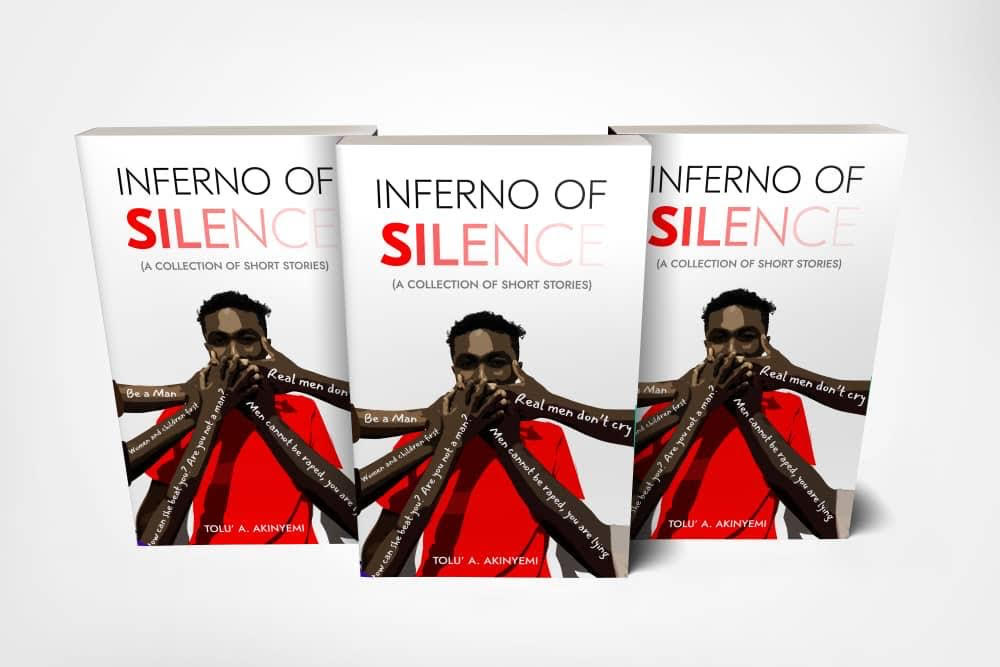Hello everyone. Thank you for joining today’s programme. My name is Omotayo Sangofadeji.
I am the author of ‘Her Eyes Tell Our Stories’ a collection of short stories.
I have known Tolu’ for a couple of years now and he was a great support to me on my journey to become a self-published author.
From his first book to his current collection, I can proudly and confidently say that Tolu’ is passionate about the arts and creative scene.
“Black Lives Matter” is the opening story in Tolu’ Akinyemi’s short stories collection “Inferno of silence”. It is a short story that follows the lead character Ikemefuna, and his journey as a footballer in Nigeria to become an immigrant in Europe.
The story explores a major theme that I would love to tag ‘the social-dynamics of complexion’ aka how quickly people attack others based on skin colour. Referring to a person as ‘black’ or ‘burnt’ or name tags such as ‘Charcoal’, ‘Baba Dudu’, are just the same as ‘Oyinbo’, -nicknames that teach us colour from childhood.
Ikemefuna is called ‘Blacky’ even by his father who teases that he is dark in complexion because his mother “drank too much black coffee while pregnant and burned his skin in the process”. The author dextrously reminds us at this point that the concept of ‘colour’ is taught, imbibed and not inborn. We were not born thinking ‘people who are fairer in complexion look good’, or that ‘dark people look dirty’, we have been socially conditioned to believe these things as true.

I particularly enjoyed how the story explores other sub themes such as hopes dashed when parents die without witnessing the success envisaged for their children; the decision it takes to immigrate- leaving behind the familiar and embracing the unknown; the tragic state of Nigerian roads (infrastructure and security wise).
The author even finds a way to remind us of the sports prowess of Kanu Nwankwo the legend.
I also admire how the author addresses the epidemic of SARS and how an institution preys on the very people it was created for without consequences. To achieve the desired effect and ring home how much of a rot the Nigerian judiciary has become stuck in, the author introduces us to a character in the book who is thrown into the back of a police van.
The moment he gets into that van, Ikemefuna unwittingly doubts he would ever see the character again- a strong allusion to the jungle justice brand that SARS now stands for. Pick up people for no reason, detain them for no reason, unlawfully demand bail, kill whoever the trigger finds. A tragic situation.
Now, to “All Lives Matter”, to know history is to know how important it has become to emphasise that “Black lives matter”. Decades of pressure means that black people are twice more likely to be killed by a police officer while unarmed, compared to a white individual- the statistics sadly and glaringly backs up this tragedy.

Everyone is biased- whether admitted or not. In fact, Equality in everyday living might just be a myth as it is nearly impossible to prevent imbibed biases from childhood. Biases can be unlearnt as we grow older, meet more people and expand our knowledge base. But sadly, sometimes the damage already caused is irreparable.
The question I implore every reader today to ask themselves is “can you complain about racism if you are tribalistic?”. Racism doesn’t only get perpetrated by white people to black people. Racism also happens when black people turn their noses against brown people and vice versa. Even Ikemefuna who experiences racism was also racist in how he thought an Indian Man who first spoke to him in Hindu was “somewhat deranged mentally”.
We all should honestly ask ourselves, “is it that I don’t like the system, or I just don’t like how the system treats me? Would I be comfortable with a system that favours me at the detriment of others?”
To say that “All Lives matter” as a retort to “Black Lives matter” is as abysmal a retort as the “Not all men” response to “Me too”.

Whose lives are currently in danger? Whose colour is more likely to get them killed? Whose socio-cultural disadvantage will continue to trail them for most, if not for all of their lives? Who does not have access to climb up the career ladder? Who is more likely to be ignored by a Doctor and thus more likely to die from avoidable complications? Who has decades after decades been treated so unfairly, history tries in shame to rewrite the story of cruelty but fails at it?
So Yes, all lives matter. But at this point in history, we are talking about Black Lives and how they matter!
And Tolu’ Akinyemi does a great job of bringing to the forefront these pertinent issues. I particularly enjoyed the plot twist at the end of this story. You have to read your copy to find out what that plot twist is.
Or should I type a spoiler? I bet not!
‘Inferno of Silence’ is available now: https://amzn.to/2xLUdJr and https://www.tolutoludo.com/shop.html
